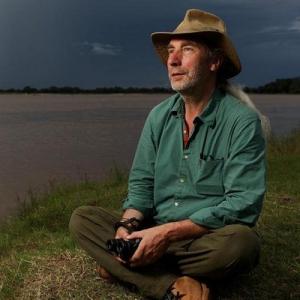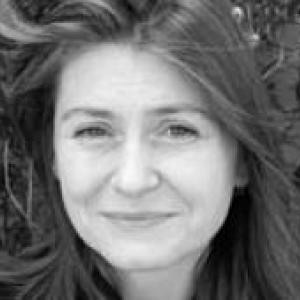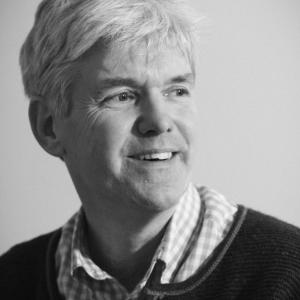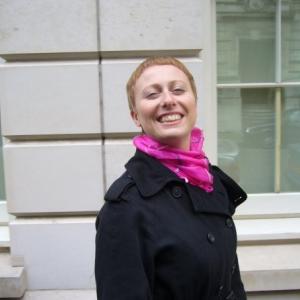The winning poem and essay, and two runners-up in the respective categories, were announced online by Guest Chair Simon Barnes on 27th April. Watch Simon’s speech below.
Keats-Shelley Prize 2020
Prize Winners
Poetry Prize Winner
Pascale Petit, Indian Paradise Flycatcher
Poetry Prize Highly Commended
Emma Simon, The Visitors
Jill Sharp, Cemetery crow
Essay Prize Winner
Rosie Whitcombe, Connection, Consolation, and the Power of Distance in the Letters of John Keats
Essay Prize Highly Commended
Sarah Doyle, Four Seasons fill the measure of the year: Romantic Meteorology
Andrej Gregus, Sublimity in the poetry of William Wordsworth and Percy Bysshe Shelley
Shortlists
Scroll down to read all the shortlisted entries for 2020’s Keats-Shelley Poetry and Essay Prize.
The three poems were chosen by our Poetry Judges, Professor Deryn Rees-Jones and Will Kemp. The essays were selected by Professors Sharon Ruston and Simon Bainbridge. The final selection was made by 2020’s Prize Chair, Simon Barnes.
Poetry Shortlist
Essay Shortlist
Judges
-
Chair of Judges

Simon Barnes
Simon Barnes is an award-winning journalist, writer and novelist. In a 32-year career at The Times, he wrote mainly about sports, covering seven Olympics, five World Cups, a Superbowl and the World Chess Championship. His profiles included everyone from David Beckham to Red Rum, his publications range from novels about Hong Kong to a biography about England off-spinner Phil Edmunds. It was Simon’s talent for elegantly encapsulating the drama simmering underneath the action and within the players that won him readers, admiration and awards: ‘With Sampras the beauty was subtle, the tactics and execution obvious. With Federer, it was exactly the other way around,’ as he wrote in his 2018 career-spanning retrospective, Epic.
In addition to becoming The Times’ Chief sportswriter in 2002, Simon wrote columns about wildlife and birdwatching. These ushered in his second act as a writer of the natural world. Notable titles include Flying in the Face of Nature (1990), the bestselling How to be a Bad Birdwatcher (2004), and has continued with 2016’s The Meaning of Birds, Rewild Yourself (2018) and most recently On the Marsh: A Year Surrounded by Wildness and Wet. Simon was born in Bristol and grew up in London, returning to his birthplace to read English at Bristol University. In 2007, the university awarded him an honorary doctorate.
Listen to Simon consider what nightingales meant to John Keats and John Clare at the Keats-Shelley Podcast
Simon’s website is here.
Follow him on Twitter.
-
Poetry Judges

Professor Deryn Rees-Jones
Deryn Rees-Jones is Professor of Poetry at the University of Liverpool. She won an Eric Gregory award in 1993 and The Memory Tray (Seren, 1995) was shortlisted for the Forward Prize for Best First Collection. Her other works are Signs Round a Dead Body (Seren, 1998), Quiver (Seren, 2004), and a groundbreaking critical study of twentieth-century women’s poetry, Consorting with Angels (Bloodaxe, 2005), which was published alongside her accompanying anthology Modern Women Poets (Bloodaxe, 2005). Deryn’s selected poems, What It’s Like to Be Alive, was published in 2016 and is a Poetry Book Society Special Commendation.
In 2004 Deryn was named as one of Mslexia’s ‘top ten’ women poets of the decade, as well as being chosen as one of the Poetry Book Society’s Next Generation poets.
Deryn has considerable experience as a poetry judge, including the National Poetry Competition, the T.S. Eliot Prize, the Costa Prize (Poetry) and every two years chairs the judging panel for the English Association’s Michael Murphy Poetry Prize for a best first collection of poetry.
Deryn’s most recent book is Paula Rego: The Art of Story, the first full-length survey of one of the most distinctive and important modern artists. Her most recent books of poems are Erato (Seren 2019) shortlisted for the T S Eliot Prize and Welsh Book of the Year, and Hôtel Amour (Seren 2025). She is the editor of the award-winning Pavilion Poetry series for Liverpool University Press, and a Fellow of the Royal Society of Literature.
-

Will Kemp
Will Kemp is a writer of poems, short stories and novels. He is Assistant Editor at Valley Press and has taught Creative Writing at York University.
He has won the Keats-Shelley Prize, Cinnamon Short Story Competition, Debut Collection Award, Coast to Coast Prize, Cinnamon Pamphlet Competition and Envoi International. He has also been well-placed in many others.
His publications include four collections of poems and short stories, two award-winning pamphlets and 500 pieces in Aesthetica, The Guardian, Iota, Magma, The North, Orbis, Poetry News, Rialto, The Times and others.
His debut short story collection, Surviving Larkin, was published recently by Valley Press. His fourth full poetry collection, In Another Life, will also be published shortly by Valley Press.
He regards a commendation in the Keats-Shelley Prize 2006 as the turning point in his writing career since it spurred him on during a time of self-doubt.
-
Essay Judges

Professor Sharon Ruston
Professor Sharon Ruston is a long-standing judge of essay prizes. She is Chair of Romanticism in the English Literature and Creative Writing department at the University of Lancaster.
Her research specialism concerns the relations between the literature, science and medicine of the Romantic period, 1780-1820. She has published The Science of Life and Death in Frankenstein (2021), Creating Romanticism (2013), Romanticism: An Introduction (2010), and Shelley and Vitality (2005). She co-edited The Collected Letters of Sir Humphry Davy for Oxford University Press (2020) and led the AHRC-funded project to transcribe all of the Davy’s notebooks: wp.lancs.ac.uk/davynotebooks/
Read a Q&A with Sharon and Professor Tim Fulford at the BARS Blog.
Visit Sharon’s profile page at the University of Lancaster here.
-

Professor Simon Bainbridge
Professor Simon Bainbridge is a long-standing judge of the essay prizes. He teaches and writes at the University of Lancaster.
His main research interest is in the relationship between the writing of the Romantic period and its historical context. He is the author of Napoleon and English Romanticism (Cambridge University Press, 1995), British Poetry and the Revolutionary and Napoleonic Wars (Oxford University Press, 2003) and Mountaineering and British Romanticism: The Literary Cultures of Climbing, 1770 – 1836 (Oxford University Press, 2020) and the editor of Romanticism: A Sourcebook. He has published in journals such as Romanticism, Romanticism on the Net and The Byron Journal and has written essays and entries for An Oxford Companion to The Romantic Age: British Culture 1776-1832, Romanticism: An Oxford Guide, The Blackwell Companion to European Romanticism, and The Oxford Handbook of British Romanticism. He is a Trustee of the Wordsworth Trust and the Wordsworth Conference Foundation.
Visit Simon’s profile page at the University of Lancaster here.